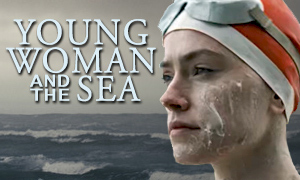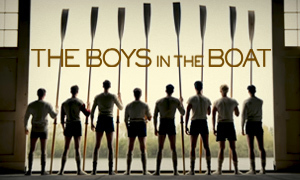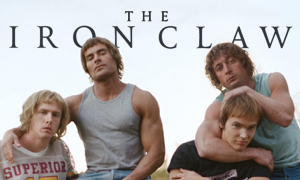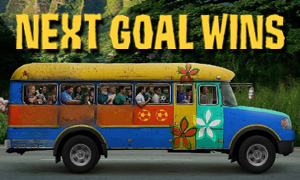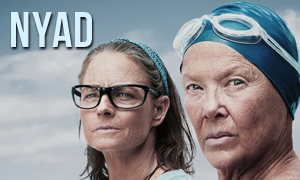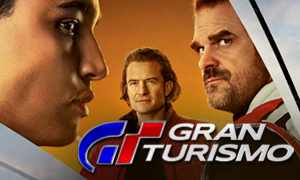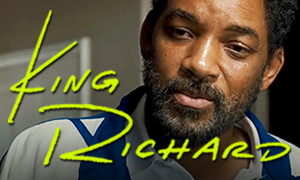Pawn Sacrifice: History vs. Hollywood
| REEL FACE: | REAL FACE: |
Tobey Maguire
Born: June 27, 1975 Birthplace: Santa Monica, California, USA | Bobby Fischer
Born: March 9, 1943 Birthplace: Chicago, Illinois, USA Death: January 17, 2008, Reykjavík, Iceland (renal failure) |
Liev Schreiber
Born: October 4, 1967 Birthplace: San Francisco, California, USA | Boris Spassky
Born: January 30, 1937 Birthplace: Leningrad, Russian SFSR, Soviet Union |
Peter Sarsgaard
Born: March 7, 1971 Birthplace: Belleville, Illinois, USA | Father Bill Lombardy
Born: December 4, 1937 Birthplace: New York City, New York, USA |
Michael Stuhlbarg
Born: July 5, 1968 Birthplace: Long Beach, California, USA | Paul Marshall
Born: November 19, 1928 Death: May 10, 2012 Pictured in the late 2000s. |
Robin Weigert
Born: July 7, 1969 Birthplace: Washington, District of Columbia, USA | Regina Fischer
Born: March 31, 1913 Birthplace: Switzerland Death: June 27, 1997, Palo Alto, California, USA (cancer) |
Lily Rabe
Born: June 29, 1982 Birthplace: New York, New York, USA | Joan Fischer
Born: 1938 Birthplace: Moscow, Russia Death: June 2, 1998, Portola Valley, California, USA (cerebral hemorrhage) |
When did Bobby Fischer start playing chess?
The Pawn Sacrifice true story confirms that Fischer started playing chess at age six after his mother moved him and his sister Joan from Chicago to Brooklyn. Like in the movie, a pre-teen Bobby Fischer possessed great self-confidence when he faced and beat his adult challengers with ease, winning the U.S. Chess Championship at age 14 in 1958 (Biography.com). He then went on an exhibition tour of sorts from city to city, playing anywhere from 40 to 80 people at a time (Bobby Fischer Against the World). After taking the U.S. title, he quickly turned his attention toward the international and Russian titles.
What is the most noticeable difference between Bobby Fischer and his onscreen counterpart, Tobey Maguire?
If you hadn't noticed it already, Bobby Fischer is five inches taller than Tobey Maguire. The 5' 8" Spider-Man actor drew criticism from some in the chess world, who maintain that Fischer's height (6' 1") and athletic build were key components of his personality, arguing that his intimidating physique was an important part of his game that should have been represented in the movie.
Was Bobby Fischer's mother really a communist?
Yes. Fischer had a fatherless childhood and was raised by his mother, Regina Fischer, a left-wing political activist/communist who filled her son's head with conspiracy theories (she had lived in pre-Stalinist Russia for many years). She feared their phone was tapped and that the suspicious car parked out front was a G-man there to watch them. Born in Switzerland and raised in St. Louis, his mother had a Russian-Jewish-Polish heritage.
The real Bobby Fischer took an early dislike to his mother and in turn communism. It is unclear whether her Jewish roots directly led to her son's anti-Semitism, but the movie makes an argument for it. Eventually, Regina and her son were indeed put under surveillance by the FBI, and the more well-known Fischer became from his chess playing, the more the FBI monitored them. Over time, the FBI, in an attempt to keep tabs on communists in the U.S., accumulated 1,000 pages on Fischer and his mother. -LATimes.com
Who was Bobby Fischer's biological father?
The Pawn Sacrifice true story reveals that Bobby Fischer's biological father is widely believed to have been Paul Felix Nemenyi, a Hungarian-born mathematician who Regina met while married to German biophysicist Hans Gerhardt Fischer. Regina met Nemenyi in 1942 while taking classes at the University of Denver. Despite Hans-Gerhardt Fischer's name appearing on Bobby's birth certificate, he had never lived with Regina in the U.S. and was banned by immigration authorities from entering the country. Regina divorced Hans-Gerhardt in 1945 since he wasn't providing for her and her two children, Bobby and Joan (pictured). -Chess.com
Did Bobby Fischer really accuse the Russians of cheating?
Yes. "One tournament I played in back in '62 ... they prearranged a dozen games among themselves to eliminate me," Fischer explained on The Dick Cavett Show in 1971. "It's against the rules. Also, sometimes they would discuss the game among themselves while it's in progress, to get advice from each other. You know, little things like that. I complained a lot about it back then." The movie sums this up to one afternoon, which is not completely accurate time-wise, but it truthfully conveys the gist of what happened. It did prompt Fischer to make the decision to stop playing professional chess for a while.
Did Bobby Fischer really walk out of a chess match because of the lighting?
The first match that Bobby Fischer dropped out of was in 1961 against Samuel Reshevsky over a scheduling conflict with the match organizer. However, Fischer does allude to dropping out of another match in part because of the lighting. "First of all, I only dropped out of two matches in my whole life," Fischer told Dick Cavett in 1971. "I played in about 60 matches in my whole life, so it's been a little exaggerated. But I was complaining about the lights, spectators were bothering me, a lot of noise, using all kind of horrible lighting, chandelier-type lighting, when actually you need really soft lighting for this. This is a serious business, you know, five hours working with your eyes."
Did the real Bobby Fischer feel that breaking his opponent's ego was the best part of chess?
Yes. During Bobby Fischer's 1971 interview on The Dick Cavett Show, he was asked where the greatest moment of pleasure was for him in playing chess, which would correspond to hitting a home run in baseball. "Well, when you break his ego," answered Fischer, "which is where it's at. ... When he sees it's comin' and breaks all up inside."
Did Father Bill Lombardy really beat Boris Spassky years earlier?
Yes, like Father Bill Lombardy (Peter Sarsgaard) states in the Pawn Sacrifice movie, it happened when they were younger. The real Bill Lombardy beat Boris Spassky in their individual game when the U.S. Team won the 1960 World Student Championship in Leningrad. Bill Lombardy coached Fischer from the time he was 11 1/2 through the 1972 World Chess Championship when Fischer faced Spassky.
Did Bobby Fischer really tear apart his hotel rooms and phones looking for bugging devices?
Yes. The true story behind Pawn Sacrifice confirms that as his fame grew in the 1970s, so did his paranoia (though it should be noted again that Fischer and his communist mother Regina were indeed eventually watched by the FBI). He would tear apart his hotel rooms searching for wiretaps or declare that his food had been poisoned. -LATimes.com
Did Bobby Fischer really physically train for his matches?
Yes. Bobby took fitness very seriously. "Mainly I just use it to keep in shape for the chess," he told Dick Cavett in 1971. "You're sitting there for five hours. ... There's a reason that players fade out say in their forties or fifties, just 'cause about the fourth or fifth hour of play they lose ah, ya know, their concentration, their stamina is gone. You gotta have a lot of stamina."
Did he really asked to have the TV removed because he feared the Russians were watching him through the screen?
Yes. Bobby believed that his hotel rooms were bugged and that the Russians were attempting to poison his food. He even developed a fear of flying because he believed that the Russians might booby trap the airplane. -Pacific Standard
Did Bobby Fischer really tell reporters that the government was monitoring him through his dental fillings?
Yes. In researching the Pawn Sacrifice true story, we learned that Fischer indeed made this statement to the press. In real life, the paranoia got so bad that he had all of his dental fillings removed and was left with a mouthful of hollow teeth. -LATimes.com
Did Bobby Fischer sprint out of the airport after being approached by a Daily News photographer?
Yes. International chess master Dr. Anthony Saidy made it his personal mission to get Bobby to go to Iceland to play in the 1972 World Championship against Boris Spassky. Saidy, who was flying to New York to be with his dying father, convinced Bobby to go with him, figuring it would get Bobby one step closer to Iceland. While at Kennedy Airport in New York City to buy tickets to Iceland, a New York Daily News photographer spied Bobby, who in turn took off running at top speed out of the airport. He hurried into a curbside limousine and eventually ended up hiding out at Saidy's parents' house in Long Island. -Bobby Fischer Against the World
Was Paul Marshall really a lawyer for British rock bands like the Rolling Stones?
Yes. Paul Marshall had indeed been a lawyer for British rock bands, including the Rolling Stones. Marshall was Fischer's on-and-off again lawyer/business agent/representative. Like in the Pawn Sacrifice movie, he joined Father Bill Lombardy in helping to convince a reluctant Fischer to participate in the 1972 match in Iceland against Spassky, and Fischer did take the decision down to the wire. However, Nixon did not encourage Paul Marshall to help convince Fischer to play, as the movie sort of implies. Marshall already knew Fischer through one of his clients, David Frost. -NPR
Did Henry Kissinger really call Bobby Fischer to try to convince him to go to Iceland?
Yes. "Fischer was very reluctant to go," says Kissinger, former diplomat and Secretary of State, "and I placed a call to him and I said to him, 'Go.'" -Bobby Fischer Against the World
Did Bobby Fischer really insist the match be moved because the cameras were too loud?
Yes. Like in the movie, the real Bobby Fischer's demands included having at least five feet between himself and the audience. After the 1972 match began, he complained that the cameras were too loud and refused to play until they were removed. He forfeited the second game of the match when the organizers refused to give in to his demands. He agreed to continue the match only if it was moved to a ping-pong room in another section of the facility and broadcast to the audience via closed-circuit television. -Biography.com
Is it possible that Bobby Fischer's paranoia was the result of a psychological illness?
Yes, and experts have weighed in for years on Bobby Fischer's diagnosis, with some of the potential culprits being schizophrenia, paranoid personality disorder, and Asperger's syndrome (LATimes.com). However, it is certainly possible that Fischer wasn't suffering from a specific condition, other than an all-consuming obsession with the game of chess. "I give 98 percent of my mental energy to chess; others give only two percent," Fischer once stated, emphasizing his extraordinary mental commitment, while at the same time revealing how little mental energy he devoted to the rest of his life.
Turn-of-the-century writer G.K. Chesterton famously quipped, "poets do not go mad; but chess players do." History confirms this with a string of players prior to Fischer who descended into madness, including Austrian World Champion Wilhelm Steinitz, New Orleans native Paul Morphy (the United States' first chess champion), Russian champion Aron Nimzowitsch, Mexican chess hero Carlos Torre, Brooklyn born player turned killer Raymond Weinstein, and Russian mass-murderer Alexander Pichushkin (dubbed the Chessboard Killer) (BleekerStreetMedia). Fischer probably most resembles the American, Morphy, who at age 26 wandered the streets and muttered to himself; and essentially became a paranoid schizophrenic. Both men gave up the game at the height of their success and then disappeared into a world of neurosis (Bobby Fischer Against the World).
Was the final game in the movie just as remarkable in real life?
No, at least not according to chess writer and grandmaster Andy Soltis, who played against Fischer in the past. "These moves are not that remarkable," Soltis says of the movie's climactic final game (the Iceland match consisted of a total of 24 individual games). "The film ends when they're calling this game he played the greatest ever, and everybody supposedly acknowledges it. But in fact, it wasn't that great a game. It wasn't the best game even played in that match." -NPR
Did Bobby Fischer's paranoia really rub off on Boris Spassky, leading the Russian to suspect his swivel chair had been tampered with?
Yes. Fischer requested a certain expensive, black-leather, low-slung swivel chair for the world-famous August 31, 1972 showdown in Reykjavik, Iceland. When his opponent, Boris Spassky, saw the chair, he demanded the same Earnes Executive Chair too and another was quickly air-shipped to the event (EarnesOffice.com). Well into the match, Boris Spassky complained that his chair was vibrating and wanted it inspected. He also argued that the lights were buzzing too noticeably. -Biography.com
Does the movie get the chess moves right?
Mike Klein of Chess.com says that it appears that they used actual chess games from the 1972 match. After seeing the film, chess writer and grandmaster Andy Soltis told NPR, "The actual moves of that match are the moves that you'll see in the movie." Richard Bérubé of the Quebec Chess Federation (La Fédération Québecoise des Échecs) was the chess consultant on the film.
Why did so many good chess players come out of Russia?
Bobby Fischer answered this question on The Dick Cavett Show in 1971. "They're subsidized by the government," said Fischer, "and all their players are professionals. So they keep at it. We have a lot of talented players in this country, but for one reason or another they just kind of fade out. They lose interest because there's not that much incentive." The real Bobby Fischer learned to speak Russian so that he could read and analyze Soviet chess literature (TheGuardian.com).
Did Boris Spassky really give up on move 40 of game 21?
Yes. The match was the best of 24 games, where a win = 1 point, a loss = 0, and a draw = 1/2 point, meaning that the first player to get 12 1/2 points would be crowned the champion. Fischer was winning the match 11 1/2 to 8 1/2 and needed only one point to win the title. On the 40th move of the 21st game, the match was adjourned for the evening for the two players to go analyze their positions. The next morning Spassky didn't even show up to play, realizing that Fischer had him beat. He informed the tournament officials that he was retiring from the match and that Fischer was the new world champion. -Bobby Fischer Against the World
Was the 1972 match really as big a deal as the movie implies?
Not quite, but the Fischer vs. Spassky match was a televised and much talked about event. It even sparked an upswing in chess clubs around the country. It indeed had some Cold War overtones, but not to the height implied in the Pawn Sacrifice movie. Chess writer and grandmaster Andy Soltis told NPR that one of the things that the movie gets wrong is that they try to portray Fischer as the "pawn," the "sacrifice," who is maneuvered by the United States government into a propaganda victory. In the least this is an exaggeration.
Did Bobby Fischer focus on other areas of his life after winning the title?
Not exactly. Immediately following the win, Bobby Fischer was asked by NBC News how it felt to be the world champion. "It feels pretty good," said Fischer. "My goal now is to play a lot more chess. I feel I haven't played enough chess." As conveyed in the movie, after devoting his entire life to chess, Fischer had trouble knowing how to do anything else. "I woke up the day after the thing was over and I just felt different, like something had been taken out of me," Fischer told Johnny Carson later that year.
He began to obsess over politics and religion, often talking about nuclear disarmament and the Worldwide Church of God, a controversial religious group that often preached about an impending second coming of Christ. He eventually felt betrayed by the church when one of its prophecies didn't come to pass. He also became more paranoid that he was being spied upon by the Soviets, etc. He began reading the Protocols of the Learned Elders of Zion, which contained anti-Semitic rhetoric. -Bobby Fischer Against the World
Was Bobby Fischer really forced into exile for replaying Spassky in a match that violated U.N. sanctions?
Yes. The United States issued an arrest warrant for Fischer after he replayed and beat Boris Spassky in a 1992 chess match in Yugoslavia during the middle of the Yugoslav War. The showdown violated U.N. sanctions at the time. "They said if I returned, I would be arrested," Fischer said. "And if I'm convicted, it could be millions of dollars and 10 years in prison. For playing chess, which is absurd." This would essentially mean that Fischer would have to turn over his several million dollars in winnings from the 1992 match. -Bobby Fischer Against the World
Bobby Fischer in the years before his death in 2008.Did Bobby Fischer really blame Jews for the world's problems?
Bobby Fischer in the years before his death in 2008.
Yes. Despite being born to a Jewish mother and growing up in a Jewish neighborhood in Brooklyn, Bobby Fischer became known in part for his anti-Semitic views and at times blamed his failures on a Jewish conspiracy. It is unclear if this, like his strong anti-communist views, stemmed from his dislike for his mother, a communist who was part Jewish. His anti-Semitism indeed became much more pronounced when he fell into a downward spiral after his 1972 victory. -LATimes.com
Did Bobby Fischer describe the September 11th terrorist attacks as "wonderful news"?
Yes. After being kicked out of the U.S. and becoming an ex-patriot, Bobby Fischer developed a hatred for the country that he once called home. Following the death of his mother in 1996 and his sister in 1998, Bobby hadn't been home in years and had few people left to turn to for support. After the events of September 11, 2001, Bobby was interviewed on Radio Bombo in the Philippines. "This is all wonderful news," he said. "It's time for the f***ing U.S. to get their heads kicked in. It's time to finish off the U.S. once and for all. This just shows you that what goes around comes around, even for the United States." He was eventually detained in Tokyo, Japan in 2004 until Iceland agreed to give him citizenship.
Did Liev Schreiber know how to speak Russian before taking on the role of Spassky?
No. Despite having to speak every word of his dialogue in Russian, Liev Schreiber didn't know the language at all before accepting the role of Boris Spassky. -Deadline.com
Bobby Fischer Interview & Related Videos
Expand on your knowledge of the Pawn Sacrifice true story by watching the Dick Cavett Bobby Fischer interview below.
Link-to-Learn More:
